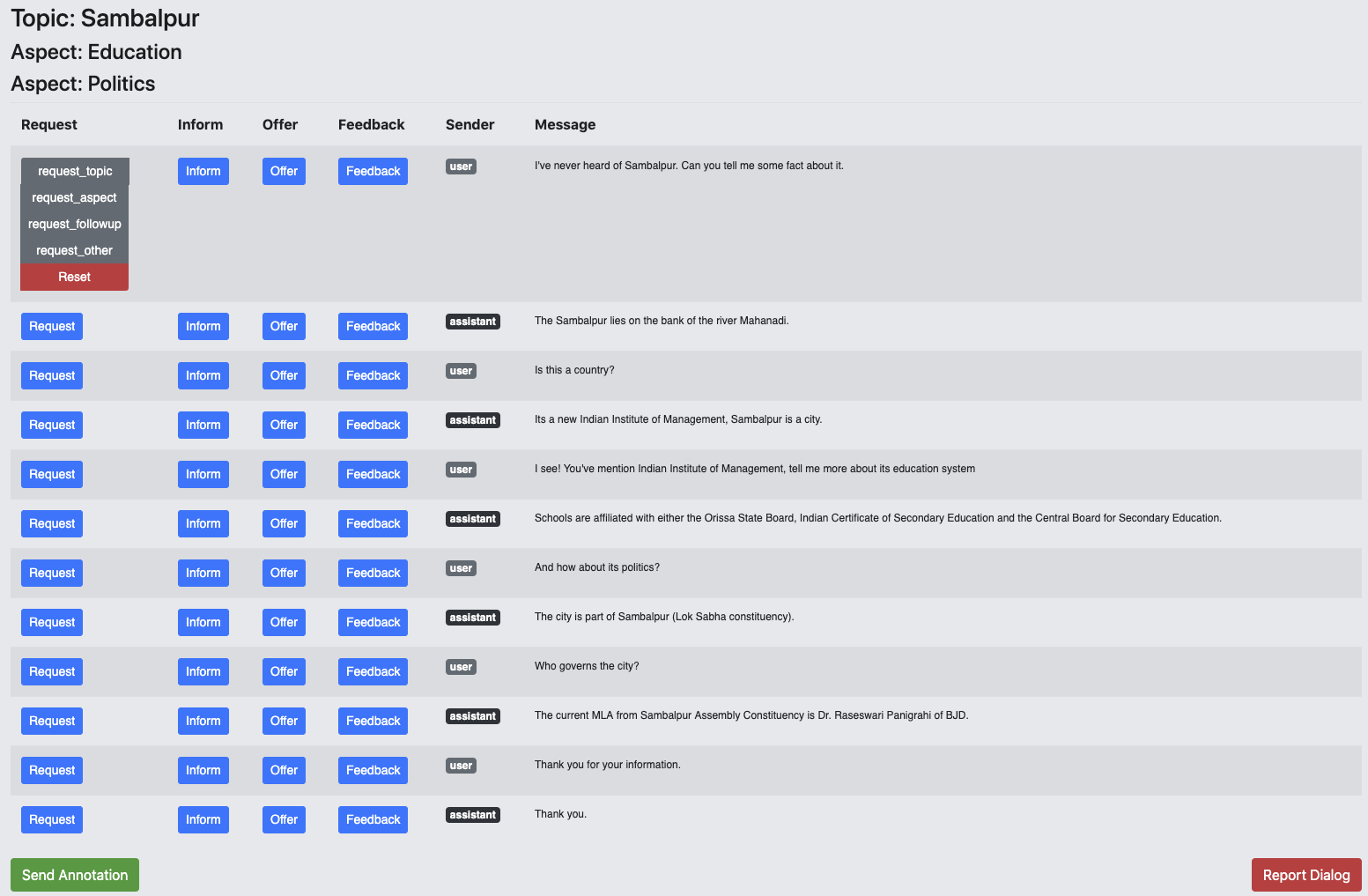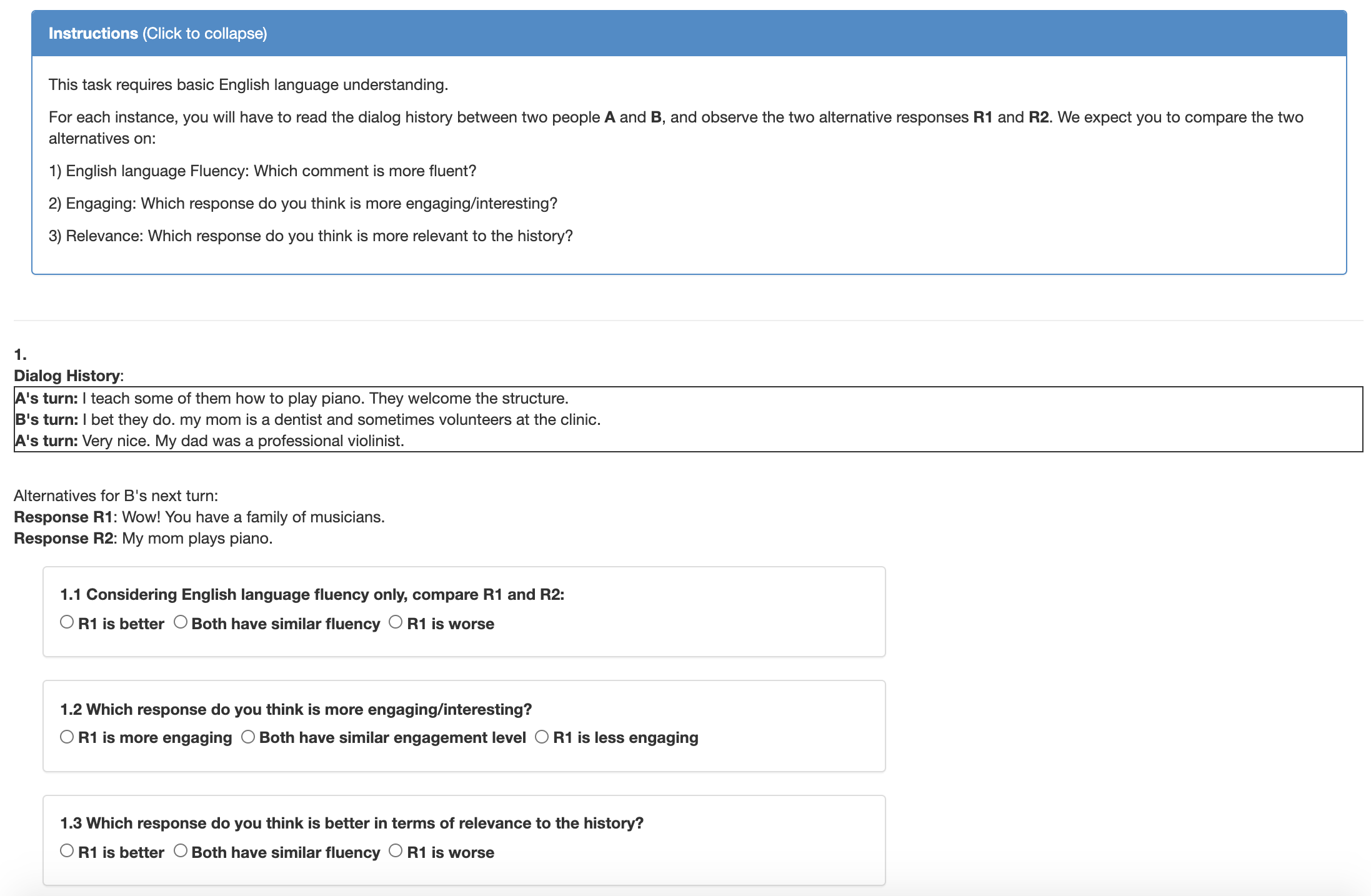“I'd rather just go to bed”: Understanding Indirect Answers
Annie Louis, Dan Roth, Filip Radlinski
Discourse and Pragmatics Long Paper

You can open the pre-recorded video in a separate window.
Abstract:
We revisit a pragmatic inference problem in dialog: Understanding indirect responses to questions. Humans can interpret 'I’m starving.’ in response to ‘Hungry?’, even without direct cue words such as 'yes' and 'no'. In dialog systems, allowing natural responses rather than closed vocabularies would be similarly beneficial. However, today’s systems are only as sensitive to these pragmatic moves as their language model allows. We create and release the first large-scale English language corpus 'Circa’ with 34,268 (polar question, indirect answer) pairs to enable progress on this task. The data was collected via elaborate crowdsourcing, and contains utterances with yes/no meaning, as well as uncertain, middle-ground, and conditional responses. We also present BERT-based neural models to predict such categories for a question-answer pair. We find that while transfer learning from entailment works reasonably, performance is not yet sufficient for robust dialog. Our models reach 82-88% accuracy for a 4-class distinction, and 74-85% for 6 classes.
NOTE: Video may display a random order of authors.
Correct author list is at the top of this page.
Connected Papers in EMNLP2020
Similar Papers
Discern: Discourse-Aware Entailment Reasoning Network for Conversational Machine Reading
Yifan Gao, Chien-Sheng Wu, Jingjing Li, Shafiq Joty, Steven C.H. Hoi, Caiming Xiong, Irwin King, Michael Lyu,

“You are grounded!”: Latent Name Artifacts in Pre-trained Language Models
Vered Shwartz, Rachel Rudinger, Oyvind Tafjord,

Information Seeking in the Spirit of Learning: A Dataset for Conversational Curiosity
Pedro Rodriguez, Paul Crook, Seungwhan Moon, Zhiguang Wang,

Like hiking? You probably enjoy nature: Persona-grounded Dialog with Commonsense Expansions
Bodhisattwa Prasad Majumder, Harsh Jhamtani, Taylor Berg-Kirkpatrick, Julian McAuley,
